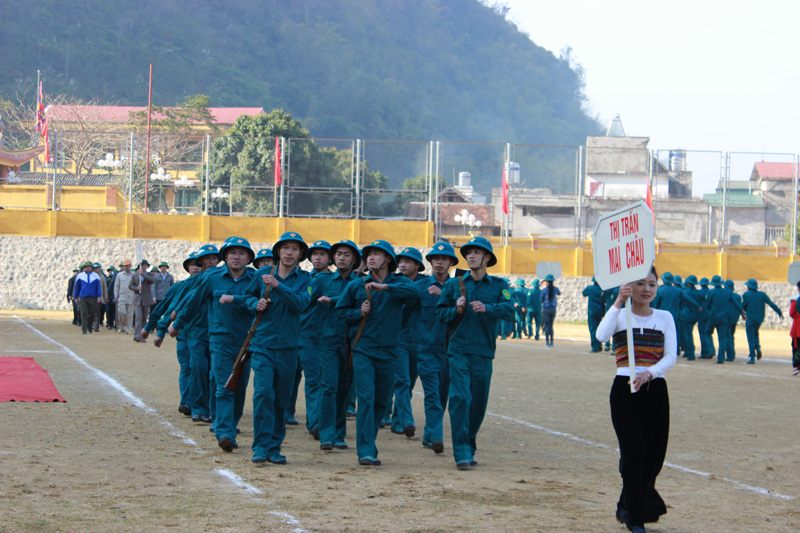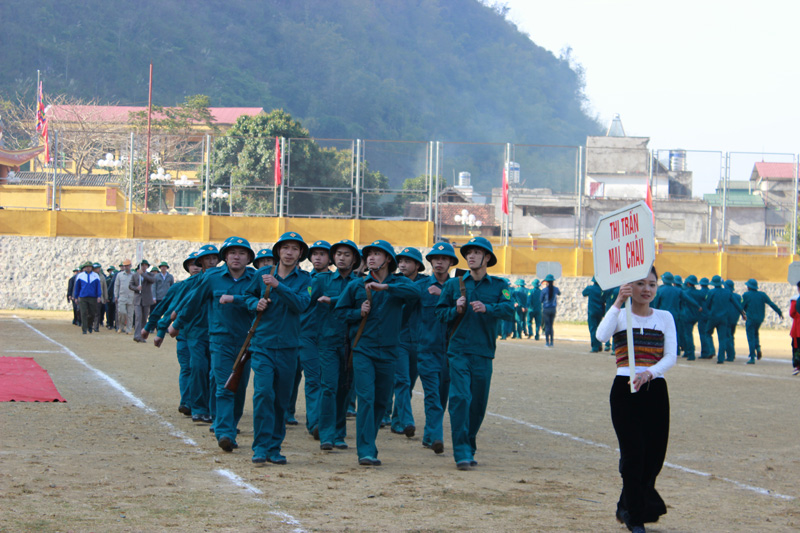



Every year, Mai Chau strictly conducts training
courses to enhance preparedness for local armed forces.
Since the Party was established, all people from ethnic groups in Mai Chau have consistently followed the Party and President Ho Chi Minh, determining to fight enemies by all means along with stepping up production.
In 1914, after the "Viet Minh” Front (League for the Independence of Vietnam) made its debut, the "Cuu quoc” (National Salvation) Group of Vang street and "Viet Minh” Group in Suoi Rut town were formed, which were the first national salvation groups of Hoa Binh. Since then, other "Cuu quoc” organisations continued to be established and developed, with their members actively calling for the engagement of other patriots, preparing for an uprising to undertake the government.
The
people supported and protected revolutionary soldiers who were escorted by the
enemies through Mai Chau to prisons in Son La province, while joining uprisings
to regain the government in Suoi Rut,
In
1946, the French colonists returned to
Local
people managed to safeguard strategic transport routes connecting Zones 3, 4
and the northwestern region and the north of
During that period, many fierce battles occurred to prevent the expansion of the enemy, including Bai Sang battle in May 1947 where 75 enemy troops were killed. The enemy troops were contained for two months, ensuring safe retreat of Vietnamese soldiers and officials. The feats of arms of Mai Chau soldiers and people greatly contributed to the success of campaigns in Hoa Binh and the northwestern region.
Throughout the struggle against the French colonists, Mai Chau soldiers and people engaged in 195 battles, killing or arresting 464 enemy troops, seizing 88 guns of different types and persuading 30 enemy soldiers to surrender with their weapons. Mai Chau sent 18,000 conscripted labourers to serve battlefields with 840,000 workdays, supplying the army with 195 tonnes of food, 20 tonnes of foodstuff, 48 buffaloes, 180 pigs and millions of bamboo and wood trees. The district also helped transport 200 tonnes of food and munitions, and took care of hundreds of injured and sick soldiers. During the resistance war against the French colonists, 1,260 local residents joined the army and guerrilla force, of whom 20 laid down their lives and four others were injured.
To encourage young generations of Mai Chau to continue the tradition of "Van Mai women, Tong Dau men”, the People’s Committee of Mai Chau has annually directed the district’s Military High Command to implement training courses on defence and security knowledge for public servants and State officials as well as high school students. Alongside, the district has also paid great attention to building militia, reserve force and standing army, while fulfilling the annual targets of soldier recruitment.